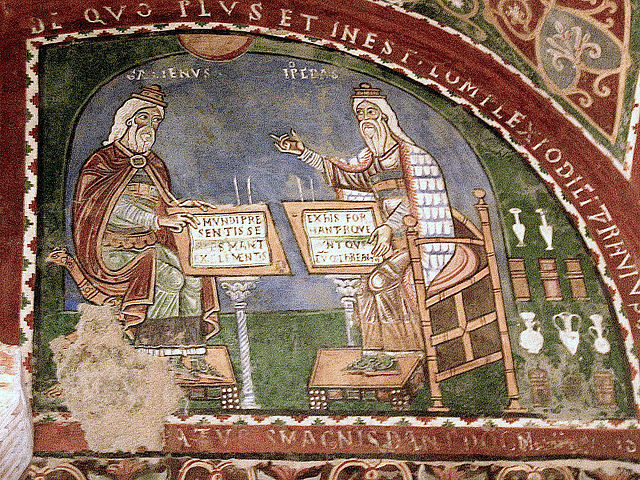Arnau de Vilanova translated or adapted from Arabic many medical works by Abu-l-Salt, Avicenna, Hippocrates and Galen. While we know from him that he knew and read Arabic, he confessed that he did not know Greek, a common shortcoming in Western Europe at that time.
- De medicinis simplicibus (“On simple medicines”), probably an early translation made in Valencia in the 1270s of the pharmacological treatise of Abu-l-Salt, an Arab polygraph born in Dénia (1068-1134). The treatise lists 420 simple medicines organised according to their effect on the human body.
- De rigore, tremore, iectigatione et spasmo (“On shivering, trembling, palpitations and spasms”) by Galen (Barcelona, 1282), a brief treatise that strives to distinguish the appearance, cause and treatment of four kinds of involuntary movements that affect all or part of the human body.
- De viribus cordis (“On the forces of the heart”) by Avicenna, a translation that might have also been made in Barcelona during the same decade as the 1281 translation. This treatise explains the relationship between the state of the heart and the normal and pathological processes of the emotions. It then describes different medicines’ ability to strengthen the heart.
- Doctrina Galieni de interioribus (“Galen’s doctrine on the internal parts”): a free rewrite made in Montpellier in 1300 in which he synthesises the first two books of De interioribus – the mediaeval name of De locis affectis, one of Galen’s most comprehensive treatises – with the intention of making it more intelligible to medical students. It explains that a scrupulous study of the symptoms of any disorder enables them to diagnose what part of the body is affected and what the problem is.
- Compendium regimenti acutorum (“Compendium of treatments for acute conditions”) is a general, synthetic rewrite of the contents of the Hippocratic treatise Regimen acutorum son diet in general health problems. The same treatise was object of a commentary by Arnau (now lost).
